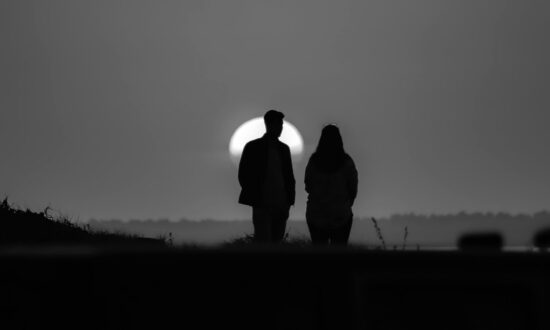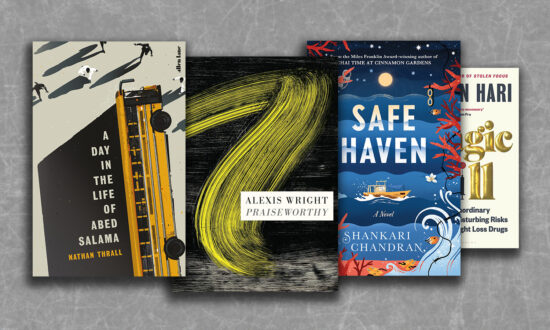Placed at the centre of Karen Wyld’s second novel is an intriguing premise: in early 20th century Australia, the young daughter of an Aboriginal father and a White mother gives birth to twin daughters of her own. The sisters bear a quirk of genetics that occasionally appears among mixed-race siblings: while Maggie is White-passing, her sister Victoria is not.
Through this one family, Wyld sets up a bifocal lens through which the complexities of racial identity – and its arbitrariness – are laid bare in the different ways each sister experiences their shared world.
As we follow the inter-generational story of Maggie, Victoria and their mother Brigid, Wyld shows us not only the many ways racism rears its head in Australian life – from the monstrous to the more subtle and insidious – but also how it shapes its survivors. We see how Brigid and then Victoria’s experiences of being marginalised for the colour of their skin is tragically internalised, re-emerging years later as they resist invitations by friends and Elders to reacquaint themselves with First Nations language, community and culture. In Wyld’s telling, racism and assimilation is a theft that keeps on taking.
At the root of the women’s search is Brigid’s childhood. She was raised by her Irish grandmother and unmoored from the Country and culture of her father – a “Black Digger” who never returned from World War I. The girls’ father, himself a survivor of the Stolen Generations, also feels a yearning for his own family and Country which ultimately pulls him away from Brigid and the daughters she later realises she is carrying. Such erasures set Brigid, and then her children, off on multiple lifetimes of searching.
At the same time, all three feel a pull towards kin and Country they can’t always put a name to, made manifest not only through the relatives and fellow travellers they meet and share stories with, but in animals and landscapes that beckon, guide and watch over them — part of a recurring thread of magical realism that runs through the book.
At its best, Wyld’s writing serves up evocative, sensory details, and charming moments of intimacy between mothers and daughters, grandmothers and grandchildren, and from sister to sister.
As a road novel that spans decades and countless kilometres, Where the Fruit Falls covers a courageous amount of ground and subject matter. Perhaps inevitably, not all of its passing characters and historical events feel quite as lived in, but the lessons Wyld tells through them – from the uncritical racism of White progressive movements to the exploitation and exotification of Aboriginal women’s bodies and images – deserve each word.
The book’s soft focus also serves another purpose as Wyld takes care not to name or explicitly invoke particular groups or regions. It’s a sensitive effort to avoid appropriating others’ stories and identities as she works to tell a more universal one about how the impacts of colonialism and racism can echo down generations.
That such a narrative of dislocation and loss, and a subsequent search for community, solidarity and safety, is one shared by so many families and survivors (Archie Roach’s memoir Tell Me Why is one recently-published example), is another reason why a parable like Where the Fruit Falls feels vital – and bittersweet.

Get InReview in your inbox – free each Saturday. Local arts and culture – covered.
Thanks for signing up to the InReview newsletter.
Karen Wyld’s Where the Fruit Falls is published by UWAP.
Walter Marsh is a freelance writer based on Kaurna Yerta whose work has appeared in InDaily’s InReview, The Guardian, The Adelaide Review, The Saturday Paper and Rip It Up. He is currently working on his first book.
——————
A Year in Review is an initiative by Writers SA, with assistance from the Australia Council of the Arts, to produce a series of book reviews published in InDaily over 12 months.
The reviews will focus on titles published during the pandemic, highlighting the work of Australian authors and publishers during this difficult time for the sector, and giving literary critics an outlet for their work that supports a strong culture of reading.
See previously published reviews here.
Support local arts journalism
Your support will help us continue the important work of InReview in publishing free professional journalism that celebrates, interrogates and amplifies arts and culture in South Australia.
Donate Here




